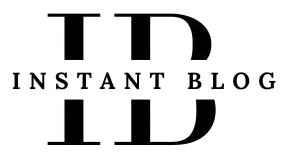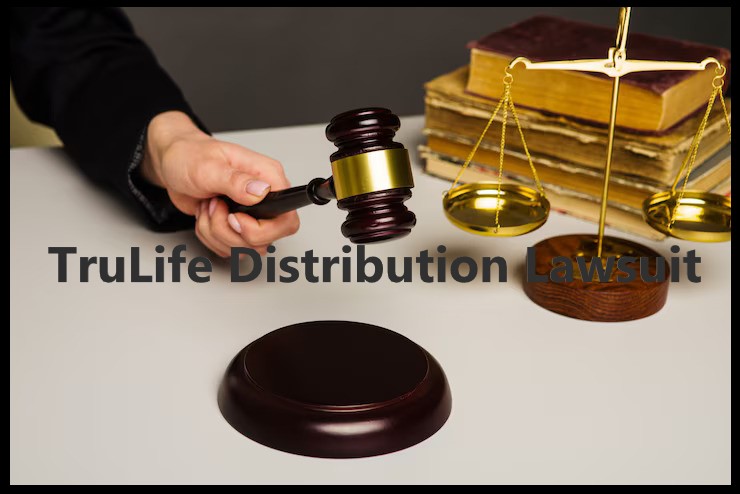Introduction
The legal industry has been closely watching the unfolding events surrounding the TruLife Distribution lawsuit in recent months. This suit against a leading cosmetics and health supplement distributor has attracted attention from both insiders and consumers. However, it is not just about TruLife; if successful, this case could change regulatory landscapes and shift market dynamics within beauty and health supplement sectors. This blog post will discuss what we know so far about the TruLife Distribution lawsuit — including its origins, key legal arguments presented by each party involved, potential implications for the industry concerned as well as future predictions or prospects.
Background of TruLife and its Products Involved
TruLife is a recognized player in cosmetic distribution plus sales of other health supplements too. Over time they have built themselves an image characterized by variety when it comes to product lines; these cover dietetics among others like skin care products etcetera which are believed to work effectively according their description labels .This however changed after facing some legal challenges recently.
The court case mainly revolves around few flagship items belonging to Trulife which allegedly failed compliance with certain regulatory standards such mislabeling or false advertisement claims . Misrepresentation may occur through overstatement of benefits promised by using them while under advertising other vital information required for understanding how safe or risky these substances can be deemed.
The most serious accusation being made against this company was distributing ingredients that had not received approval from relevant authorities tasked with ensuring public health safety thus putting lives at risk unnecessarily hence prompting legal action against regulators themselves together with consumer defenders’ organizations who sued them due their negligence during such times over failure protect citizens adequately since there were high stakes involved here between life death decisions taken seriously only courts can make judgments whether someone did wrong intentionally or not but until then everything remains allegations without any proof whatsoever..
Legal Issues and Arguments from Both Sides
In order to have a comprehensive understanding of the TruLife Distribution lawsuit, it is necessary to examine what each party is arguing in court as well as other legal issues involved.
Plaintiffs’ Arguments
According to plaintiffs mislabeling happened where they allege that certain products were labeled wrongly thus deceiving buyers about its efficiency or safety when used for intended purposes. They also claimed there was false advertising because some ads made exaggerated health benefits claims based on unfounded scientific evidence among others things like this one I found online . This is why people need lawyers who can interpret complex texts like these so we don’t get confused by them anymore.. Also regulatory non-compliance accuses Trulife distributing goods without approval from relevant authorities since some contained un sanctioned ingredients which could harm users’ bodies if taken internally or applied directly onto their skin surface areas such eyes etc.
It is important to note that all these are just allegations and until they are proven in a court of law, nobody should be considered guilty or innocent. These statements represent different positions taken by various parties involved but only judges have powers to decide who did what intentionally or not after carefully examining evidence presented before them during trials which may take years sometimes however until then it remains mere accusations without any substantiating proof whatsoever…
Defense Arguments
- Product Integrity plus Testing: According Trulife’s defense team every single item undergoes through strict tests coupled with quality control measures which conform industry standards .
- Marketing practices: The company’s advertising activities meet required legal standards therefore any perceived exaggeration falls within acceptable limits set by marketing regulations .
- Regulatory Inconsistencies: Trulife argues that alleged failures relating compliance were due ambiguities incorporated into framework rather than intentional non conformity on part…
Case Study: Distribution Compliance
The DEF Distribution case of the beauty industry has underscored the importance of adhering to international trade laws. The lawsuit brought to light areas where the company fell short in terms of trade compliance which led to heavy penalties and operational disruptions for them. It also serves as a warning sign for businesses operating in complex regulatory environments.
Implications of the Lawsuit on Consumers and Distributors
The repercussions of TruLife Distribution lawsuit go beyond courtroom walls – they affect consumers and distributors alike, albeit in different ways.
For Consumers
More Transparency: The increased focus on product labelling and advertising may force companies to be more open about their products’ ingredients thereby empowering buyers with information necessary for making informed decisions.
Safety Guarantee: Stricter enforcement of regulations could see to it that only safe and effective commodities are sold; this will minimize dangers arising from use unapproved substances.
For Distributors
Adherence To Regulations: To avoid finding themselves on the wrong side legally, distributors should ensure they meet all relevant statutory requirements which may call for heightened quality control measures among other things while also maintaining transparency throughout supply chain management systems.
Market Confidence: Winning back or retaining consumer trust has never been more important than now; therefore distributors might have no choice but adopt ethical marketing practices besides ensuring claims made by various goods are backed up by verifiable evidence wherever necessary.
Predictions About The Future And Likely Resolutions
There are several potential outcomes that could arise as a result of TruLife Distribution lawsuit going forward into different possible future contexts.
- Possible Ways Out Of Court Cases Settlements And Penalties: Instead accepting guiltiness, TruLife might decide settling through compensating victims either financially or non-financially alongside paying fines imposed against it together with undertaking corrective actions aimed at preventing recurrence such events.
- Court Decision Making Process: In case this suit proceeds trial stage then court verdicts can be either acquitting Trulife or convicting them extremely heavily such as declaring for product recall and imposing operational limits.
- Regulatory Changes: Regardless whether or not this matter succeeds on its merits, regulatory authorities might use it as an opportunity to review existing frameworks so that they become more robust in terms of oversight consumer protection among others.
Industry-Wide Ramifications
- Tighter Controls: Expect stricter controls over things like how products ought to be labeled, what should be advertised as well which ingredients need approval for use in manufacturing process; such moves may raise cost compliance businesses face with regard these areas alone.
- Consumer Activism: If people begin demanding for safer goods transparency will most likely follow suit thus creating an environment where companies have no option but producing healthier alternatives thereby affecting competitive dynamics within markets.
- Innovation And Flexibility: In order stay ahead game while complying with laws firms could invest cutting-edge technologies methods related staying compliant all times this way continuously improving themselves even when there are no other legal requirements compelling them do so they would still want remain leader industry standards wise too.
Key Takeaways Conclusion Compliance And Transparency
The DEF Distribution lawsuit is a wake-up call for the beauty industry. It shows that businesses must deal with complex regulations, ensure consumers’ safety and practice ethical marketing if they want to succeed in the health supplement and cosmetics sectors.
As we await judgment day, everyone involved should know better than ever before – compliance plus transparency does not just prevent legal errors but also stimulates sustainable growth by winning client trust hence building solid corporate reputations across boardrooms throughout every sector of economy.
Stakeholders at any level either private or public should always remember one thing; being aware about new legislations being passed or current rules amended can help save lot unnecessary expenses arising from fines imposed upon non-compliant firms while still fostering upright competition among players within marketplaces themselves thus leading into safer environments where customer satisfaction becomes guaranteed without compromising business profitability levels at large scale whatsoever.



